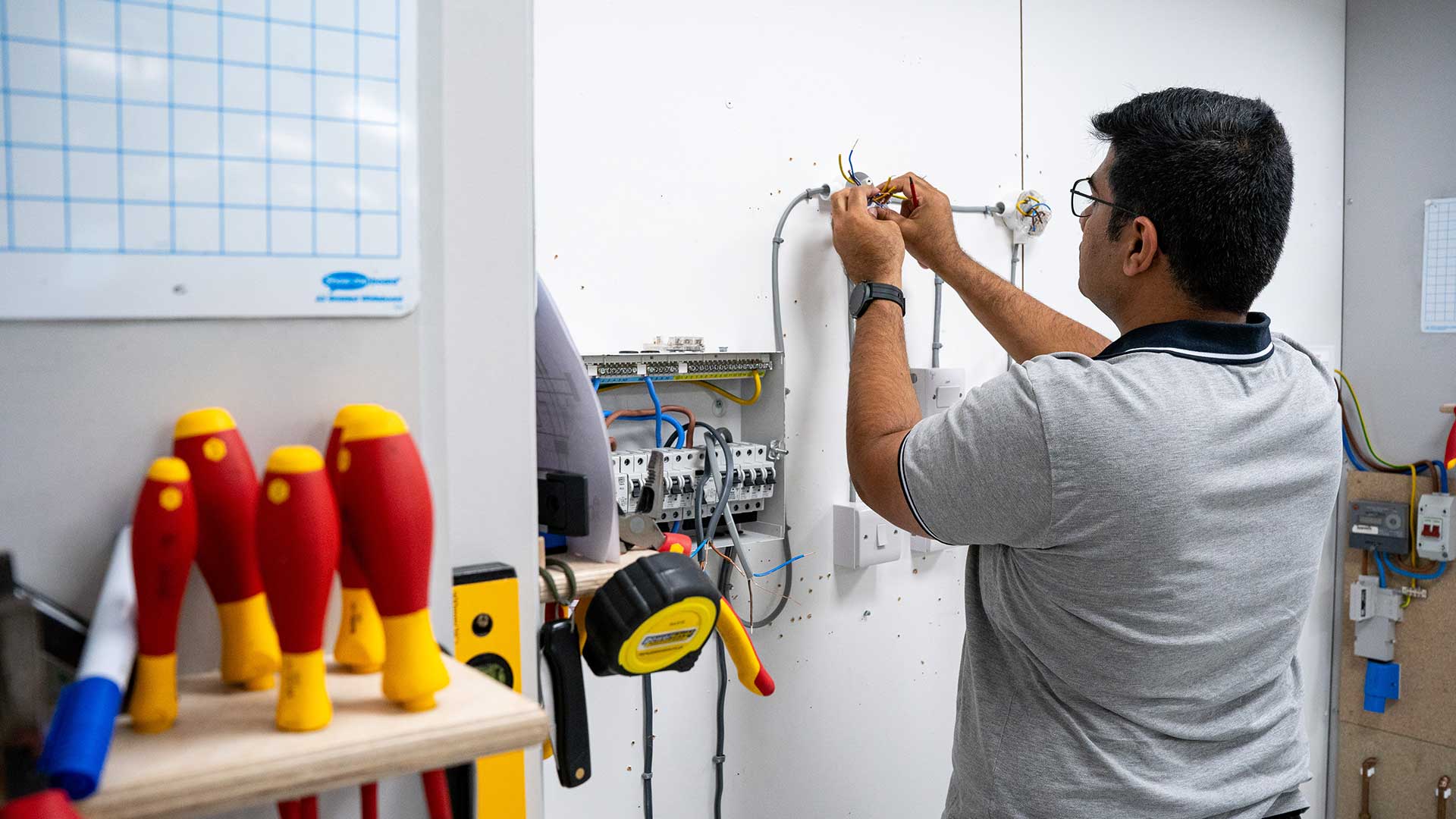Getting an electrician apprenticeship isn’t easy – so when you do get one, you need to get it right from day one on the job. As more individuals recognise the value of hands-on experience over traditional university education, the demand for apprenticeship positions has soared. While apprenticeships offer a unique avenue for aspiring electricians to learn the ropes and contribute to the workforce, misconceptions about apprentices persist among some professionals.
To bridge the gap between apprentices and electricians, Tradeskills4u, the leading electrician training school in the UK, has gathered insights directly from industry experts to compile a comprehensive list of dos and don’ts for electrical apprentices. By adhering to these guidelines, apprentices can not only enhance their learning experience but also contribute positively to the workplace dynamics.
The Do’s: Nurturing Success
- Show Genuine Interest
Demonstrate enthusiasm and eagerness to learn. Actively engage in tasks and projects, showcasing a genuine interest in the electrical field. This proactive approach not only impresses employers but also accelerates your learning curve.
- Be an Attentive Listener
Pay close attention to instructions and guidance from experienced electricians. Active listening is key to understanding tasks thoroughly and avoiding mistakes. Clear communication is the foundation of a successful apprenticeship.
- Use Your Tools
If you possess your own set of tools, make good use of them. Ensure proper care and maintenance. When borrowing tools, be responsible and return them promptly. Respecting the tools of the trade reflects positively on your professionalism.
- Take Initiative
Always be proactive in seeking tasks and responsibilities. If idle, don’t hesitate to ask for assignments or find areas that need attention. Initiative is a trait highly valued by employers, showcasing your commitment to the role.
- Ask Questions
Don’t shy away from seeking clarification. Asking questions, when needed, demonstrates a willingness to learn and a commitment to understanding the intricacies of electrical work. However, ensure that you can absorb and implement the answers received.
- Practice Outside Working Hours
Dedicate spare time to honing your skills. Practice tasks and techniques to expedite your learning process. The more proficient you become, the more valuable you become to your employer, securing your position in the team.
- Stay Informed
Stay abreast of training materials and industry updates. Reading ahead and staying informed about the latest developments in electrical work showcases your dedication to ongoing learning and professional growth.
- Be Diligent and Punctual
Consistently demonstrate diligence in your work and adhere to punctuality. These qualities are fundamental to building trust with your employer and colleagues, establishing you as a reliable team member.
- Admit and Correct Mistakes
Accept responsibility for errors. When a mistake occurs, admit it promptly, and take corrective action. Honesty and accountability are traits that employers value in an apprentice.
- Learn to Work as a Team
Cultivate a collaborative mindset by actively participating in team activities. Engage with fellow apprentices and experienced electricians, fostering a positive and supportive working environment. Collaboration enhances your learning experience and contributes to a harmonious workplace.
- Seek Out Feedback
Actively seek feedback on your performance. Constructive criticism provides valuable insights into areas for improvement and helps you refine your skills. Embrace feedback as a tool for professional development, demonstrating a commitment to continuous learning.
- Stay Safety-Conscious
Prioritise safety at all times. Adhere to safety protocols, wear the necessary protective gear, and follow established procedures meticulously. A safety-conscious approach not only safeguards you and your colleagues but also reinforces your reliability as an apprentice.
- Develop Soft Skills
Recognise the importance of soft skills such as communication, teamwork, and problem-solving. Building effective communication skills enables you to articulate ideas clearly, while teamwork ensures seamless collaboration. Strong problem-solving abilities contribute to efficient task execution.
- Show Initiative in Learning New Technologies
Stay in touch with advancements in electrical technologies. Demonstrate an eagerness to learn about new tools, equipment, and industry trends. Being proactive in acquiring knowledge about emerging technologies positions you as an apprentice with a forward-thinking approach.
The Don’ts: Pitfalls to Avoid
- Spending All Your Time on Your Phone
Avoid frequent checks of your mobile phone, texting friends, or taking calls during working hours. Excessive phone usage is a major annoyance for employers and can disrupt both productivity and professional relationships.
- Mishandle Tools
Borrowed tools should be treated with care. Leaving them lying around where they can be lost or damaged reflects poorly on your responsibility. Respect for tools is integral to maintaining a positive working environment.
- Being Unproductive
Standing with hands in pockets creates an unproductive image. Aim to stay engaged and ready to contribute. Proactively seek tasks rather than appearing disinterested or idle.
- Carrying on When You’re Uncertain
Never continue with a task if you are unsure about the proper procedure. Electricity poses inherent risks, and guessing can lead to serious consequences. Always seek guidance from experienced colleagues.
- Be Unprofessional
Resist the urge to rush out the door the moment the clock strikes the end of the workday. Demonstrating professionalism involves being present and willing to contribute to the team until the designated end time.
- Hide Mistakes
Honesty is crucial in the workplace. Concealing or attempting to cover up mistakes can erode trust. It’s essential to communicate openly about errors, enabling collaborative problem-solving.
- Limit Learning to Assigned Tasks
While adhering to assigned tasks is essential, don’t limit your learning solely to what’s explicitly assigned. Take the initiative to explore related aspects of electrical work, broadening your knowledge base. A comprehensive understanding of the field enhances your overall competency.
- Neglect Professional Networking
Avoid neglecting the importance of professional networking. Establish connections with experienced professionals, attend industry events, and engage in networking opportunities. Networking provides exposure to diverse perspectives and potential career opportunities.
- Disregard Time Management
Effective time management is critical. Avoid procrastination and prioritise tasks to ensure deadlines are met. Consistently completing assignments on time demonstrates reliability and contributes to a well-organised and efficient work environment.
- Dismiss Certification Opportunities
Don’t overlook opportunities for certifications and additional training. Certifications enhance your credentials and signify a commitment to professional development. Pursuing certifications aligning with the electrical field broadens your skill set and opens doors to specialised roles.
- Resist Industry Changes
The electrical field evolves rapidly. Resist the temptation to resist change. Embrace industry advancements, including updates to regulations and technological innovations. Adaptability positions you as an apprentice capable of navigating the dynamic landscape of the electrical profession.
In summary, following these dos and don’ts can significantly enhance your experience as an electrical apprentice. By showing genuine interest, taking initiative, and maintaining a professional demeanour, you not only contribute positively to your workplace and become an electrician everyone wants to hire, but also positions yourself for future success in the electrical field.





























